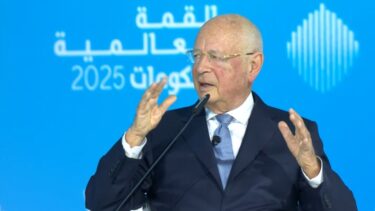Imtiaz Mohammady, founder and CEO of global technology consulting firm Nisum, doesn’t fit the Silicon Valley archetype. From the wreckage of the dot-com crash, he’s spent 25 years proving that steady, people-first growth can outlast any tech boom. From eToys to AI-driven retail, his career traces the evolution of digital commerce and the value of building patiently.
Nisum began in 2000, just after the dot-com collapse, with one clear goal: helping brick-and-mortar retailers find their footing online. Two decades later, the company operates across the U.S., Canada, India, Pakistan, Chile, Perú and Colombia, working with major retailers and emerging fintechs. Mohammady says the reason Nisum has lasted isn’t complicated, Building Success Together, a motto that guides how it treats employees, clients, and communities alike.
Speaking with Mohammady, I can see that Nisum’s longevity comes down to three core principles: start small, grow steadily, and lead with trust.
Lesson 1: Start Small, But Think in Systems
Before Nisum, Mohammady worked at eToys.com, one of the early online retailers that helped define internet commerce alongside Amazon and eBay. When the dot-com bubble burst, eToys folded, but Mohammady carried its hard-won lessons into his new venture.
“Most retailers had some sort of web presence, but it was mostly for product displays. Back then, a lot of the retailers were treating their online business as a nice-to-have extra, not a real business opportunity. So, that was the beginning of Nisum. I saw there were a lot of opportunities to engage with big Fortune 500 retailers and build them real e-commerce businesses.” Nisum’s early mission was clear: turn product catalogs into full-fledged digital storefronts.
One of the biggest fashion retailers became Nisum’s proving ground in 2003. At the time it operated separately from the retail stores and Mohammady was a good friend of the retailer president and worked with him to define the road map for the next 4 years. “The goal was to quadruple their online revenue in 4 years, a target we actually achieved in just two. We carried out a full re-engineering of its operations, both business and technology, transforming them into a true e-commerce player.”
From that foundation, Nisum’s approach crystallized. Every project would be treated as part of a larger retail ecosystem, linking the front-end experience with payments, order management, and supply chain systems. That evolved into Nisum’s end-to-end solutions model where technology, strategy, and design come together to deliver personalized results for every partner. And this fashion retailer is still a valued client, 22 years later.
After the success with a top fashion retailer, doors for Nisum really began opening. They had no marketing team and no formal sales team, just the strength of their work and the word of mouth. The success they built from it led to engagements with huge names and brands among various industries, including top food and beverage retailers, fashion retailers, travel giants among others, setting Nisum up for long-term growth.
The goal was to solve one pain point deeply but design as if the whole enterprise depends on it.
Lesson 2: Steady Beats Flashy
While competitors courted venture capital, Nisum stayed private and lean. “When we were starting out,” Mohammady recalls, “it was the worst time to start a technology consulting company. It was the dot-com bust, and nobody was interested in technology at that time.”
That early hardship shaped his outlook on growth. “From a pace perspective, we moved very strategically and were very steady. One thing I learned from the dot-com days is: control your own destiny, instead of letting Wall Street or a private equity firm control it.”
Over 25 years, every expansion, from new countries to new service lines, came organically when the foundation was ready. “We didn’t have any infusion of money from anybody,” he adds. “We had opportunities for faster expansion, but we didn’t do that deliberately. We didn’t want to stretch ourselves thin.”
That discipline carried Nisum through every downturn: the 2008 financial crisis and, later, the pandemic. “When COVID happened, our goal was to not lay off people,” Mohammady says. “All the top leaders of the company took huge salary cuts to ensure that we retained everyone.” True to the company’s motto, Building Success Together, those sacrifices were later repaid in full.
Today, Nisum still moves at its own rhythm. Each October, the leadership team gathers to set two or three core strategies for the coming year, adjusting course, never overreaching.
Lesson 3: Let Go to Grow
As Nisum expanded into India and Latin America, Mohammedy learned that exporting policies doesn’t export culture. “The Latin American culture is totally different from the Indian culture, versus the U.S. or Western culture,” he explains. “Understanding the nuances—what motivates people, how they operate—and making sure your policies, procedures, and human resources are aligned with that mindset is critical.”
Many companies, he warns, stumble when they try to impose the same Western management model everywhere. “A lot of companies fail when they take a U.S. mindset and try to implement those mindsets in the different world.” Before opening each new region, Nisum evaluated everything from local talent to culture and language. “We made sure to get the local people in to ensure that we were operating in the right manner.”
That sensitivity to local context eventually reshaped Mohammady’s own leadership style. “As a company grows, you need a strong organizational structure. And I can’t make every single decision.” The hardest lesson, he admits, was delegation. “For the first 10-12 years of Nisum, I made every decision. But bringing the right structure and the right people in, and delegating, allowed us to grow. One thing that hinders people’s growth is trying to hold on to everything. You cannot do everything.”
Learning to let go, he says, opened new doors. “When you delegate to the right people, you free up your time to do something different. It allowed me to diversify our offerings and geographies.” Empowerment—not control—became Nisum’s real growth strategy.
In our conversation, Mohammady distilled 25 years of experience into a few practical reflections on leadership, patience, and the power of staying human.
- What’s been the hardest strategic decision of your career?
“Walking away from a major client that wanted us to cut prices by half. It meant losing about 50 percent of our revenue, but keeping our integrity. They eventually came back because low cost can’t replace reliability.”
- What would you tell your younger self starting out?
“Be patient. Success is a marathon of consistent effort, not a sprint of good ideas.”
- What’s next for Nisum?
“We’ll keep evolving with AI and fintech, but our core won’t change: building success together with clients, people, and communities. Every technological shift creates new kinds of work; what matters is learning fast enough to belong to the next one. At Nisum, that means helping our clients, and our people, adapt to whatever the next revolution brings.”
Nisum is also preparing to announce the construction of a new building in India, with a capacity for around 1,000 employees in Bunaneshar, a city that is being transformed into a data center. For Mohammady, his personal goal will continue to be “doing things right, using knowledge to improve others, and continuing to impact lives.” A philosophy that transformed adversity into a lasting legacy.
Twenty-five years in, Mohammady’s outlook is still grounded in the same principles that started it all—learning fast, staying humble, and keeping people at the center of every decision. For him, technology will keep changing, but purpose shouldn’t.












